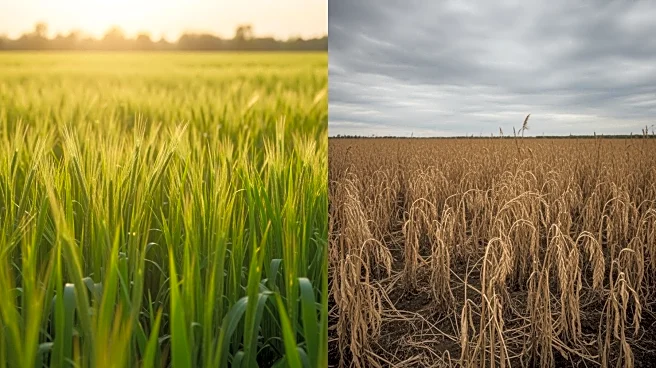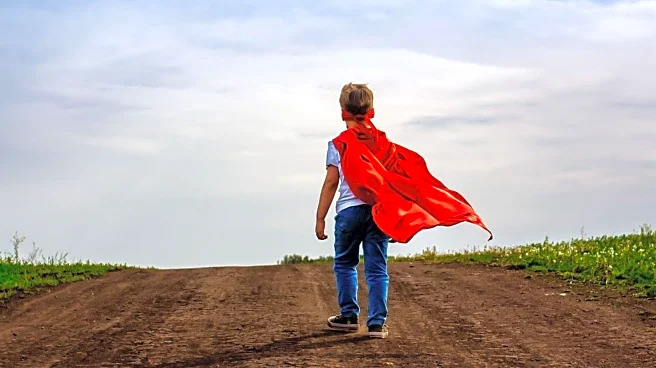What's Happening?
The 30th United Nations Climate Change Conference (COP30) in Belém, Brazil, is addressing the urgent need for climate action, with a focus on agriculture and food security. The Food and Agriculture Organization (FAO) is advocating for sustainable and resilient
agrifood systems as central to climate negotiations. Climate extremes are already affecting food yields, with unpredictable weather and increased pests disrupting agriculture. The FAO emphasizes the importance of integrating agrifood systems into national climate plans and redirecting climate finance to support these solutions. The conference also highlights the role of Indigenous Peoples in climate negotiations and the integration of traditional knowledge into strategies for food security.
Why It's Important?
The impact of climate change on agriculture is a critical issue, affecting food security for millions worldwide. COP30's focus on agrifood systems underscores the need for comprehensive strategies to mitigate climate impacts and ensure sustainable food production. The conference aims to elevate the role of agriculture in climate action, promoting adaptation and resilience measures. The integration of traditional knowledge and the involvement of Indigenous Peoples are vital for developing effective solutions. The outcomes of COP30 could influence global policies and funding priorities, shaping the future of food security and climate resilience.
What's Next?
COP30 is expected to result in commitments to place agrifood systems at the center of climate action, with specific outcomes related to adaptation, mitigation, and climate finance. The FAO will continue to support countries in implementing agrifood systems solutions and scaling up successful initiatives. The conference may lead to increased collaboration between governments, NGOs, and Indigenous communities to address climate challenges. Future steps will involve translating commitments into actionable policies and ensuring adequate funding for agrifood systems.
Beyond the Headlines
The focus on agrifood systems highlights the interconnectedness of climate change, food security, and sustainable development. The conference raises ethical considerations about the responsibility to protect vulnerable communities and ecosystems. The integration of traditional knowledge into climate strategies reflects a broader shift towards inclusive and culturally sensitive approaches to environmental challenges. COP30 may catalyze long-term changes in how agrifood systems are prioritized in global climate policies.
















